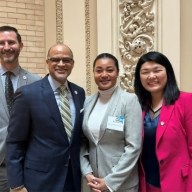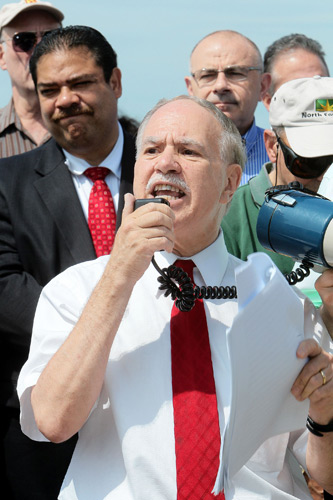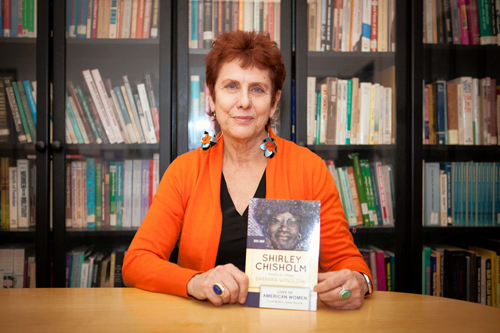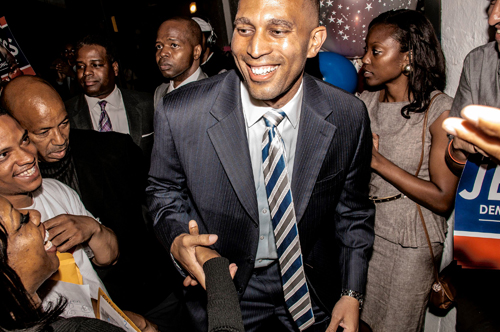In the just under two years I’ve been in Congress, we’ve had our fair share of high-stakes negotiations.
From ending the government shutdown we inherited on day one, to matters of war and peace, every single one has followed the same frustratingly predictable script. Both sides throw out a wish list from their partisan corners, then start crossing things off until we reach the bare minimum that both can accept. But now we’re facing a global crisis greater than anyone could have imagined, and the American people deserve better than this politics of the least common denominator.
That’s why my colleagues in the Problem Solvers Caucus and I unveiled our “March To Common Ground” framework to try to rewrite that script. We realize that no matter what policy area we’re dealing with or how high the stakes, our work as legislators ultimately boils down to answering two simple questions – what are the problems we’re facing, and how are we going to fix them?
It’s from there we started our bipartisan negotiations on a new proposal for COVID-19 relief, and despite what the pundits would have you think, there’s plenty of agreement on the answers to those questions.
We all agree that small businesses are hanging on by a thread through no fault of their own, so we proposed $290 billion to give them a lifeline. We all agree that out-of-work families are struggling to pay their bills and put food on the table, so we proposed $436 billion for expanded unemployment and another round of stimulus checks. And it provides funding to support schools and child care, along with the necessary testing, so that parents can get back to work without worrying about their children’s safety.
Perhaps most importantly, this framework acknowledges the fact that this isn’t a red state issue or a blue state issue. Cities and states all across the country, led by Democrats and Republicans alike, are facing unprecedented budget gaps because of this virus, so our proposal gives local governments $500 billion needed to ensure our cops, firefighters, EMS, teachers and essential workers aren’t laid off.
Make no mistake, this is not a skinny proposal, nor is it a partisan wish list. This is government working how it should – recognizing the problem at hand and finding common ground to solve it, just like our constituents have to do in their own lives on a daily basis. And if the crisis lessens or worsens, this bill has automatic boosters and reducers in place to adapt to the conditions on the ground, free from additional rounds of partisan bickering.
This isn’t a game. When lives and economies are on the line, we can’t shrink from our responsibility to do something about it. We’re Americans first, not Democrats or Republicans – and that is how we should govern.
Failure is not an option. We’ve laid out a framework that proves a deal is possible. Now it’s time for leaders on both sides of the Hill and down Pennsylvania Avenue to come together to get this done.
Congressman Max Rose represents New York’s 11th Congressional District including South Brooklyn and Staten Island.




















